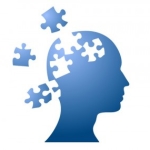
Do you believe that some of us are simply born to be creative and innovative and some not—that it’s a personality trait or perhaps some largely innate talent? Or, do you believe that we’re all innovative, just in different ways—that everyone is an innovator; we just approach it differently?
The first theory suggests that if you want innovators on your team or in your organization, you need to go find them, kind of like recruiting star athletes or brilliant academics. It’s a prevalent view but one that’s not supported by the research. We know there are all sorts of strategies and facilitation techniques like Creative Problem Solving that can take any group of people and make them dramatically more creative and innovative—so the ability to innovate can’t be just innate. Research with twins suggests that genetics plays only a relatively minor role in someone’s creativity and family influence is negligible.
The second theory is in keeping with the work of Educational Psychologist Howard Gardner on multiple intelligences. It’s consistent with the assumptions behind the popular StrengthsFinder and the Kirton Adpator Innovator (KAI) assessment that has long been used to map where folks may fall along a presumed continuum of innovation preferences. This approach is less threatening and more politically correct but it just doesn’t square with our experience. Cleary some people are more adaptable, more willing to change, more open to new ideas, and yes more creative than others.
There’s a radical difference between Michael Jordan’s level of play on a basketball court, and mine (really radical). It would be laughable for me to argue that we just have different styles in how we approach the game. That same variability occurs in people’s tendency to innovate. (Think Steve Jobs.) It’s not just a question of style. We’ve all observed people who really have locked in and resist change. We also see that what emerges from a well-facilitated ideation session is measurably more creative, not just different.
So, if our tendency to innovate is neither a personal gift nor a universal trait, what’s left? Thankfully, this is a false dilemma. There’s a third option: mindset. It’s consistent with other less-famous work in educational psychology, although it’s drawing increasing attention: the work of Stanford Educational Psychologist Carol Dweck. Dweck has found that the way students believe their own heads work has a profound affect on their academic performance…often overwhelming factors like IQ and academic ability.
In our work, we’ve taken a similar approach to the capacity to innovate. Our working assumptions (which are supported by the research) are that 1) everyone has the fundamental ability to be innovative, and 2) not everyone has exploited these capabilities to the same degree. So on one hand we recognize everyone’s ability to contribute to innovation and at the same time we account for the fact that some of us are innovation Michael Jordans, and (sorry, but) some of us are not.
What most distinguishes the innovation high performers from the less innovative is not some indiscernible secret sauce of mental faculties. What distinguishes them is their mindset. That is to say: their attitudes, assumptions and beliefs—their mental models—about how the world works. These mental models are often subconscious. Yet they can have a huge impact on someone’s behavior and therefore how well they perform—and innovate.
Those first two theories of personal innovation both have the same limitation. They leave us with no where to go. If your ability to innovate is some innate personality trait, there’s nothing you can do to change it. If you have the same ability to innovate as everyone else and you’re just different in how you approach it, you have little incentive to change.
The beauty of a mindset approach is that it gives us some powerful developmental options. Creative Problem Solving and similar facilitation techniques are rarely described this way, but they’re so effective because they shift the mindset of those who are participating. They invite people to adopt a set of working assumptions and attitudes that have been demonstrated to enhance creativity.
Our mindset is a product of our choices. Our personal collection of beliefs is something that every one of us has the power to change, and in ways that can enhance our capacity to innovate. By identifying where we are and the key adjustments we need to make, every one of us has the potential to become the next Steve Jobs…when we’re willing to change our mental models.
Imagine what you might accomplish with your team, your organization, or for that matter with yourself, by understanding how to shift your mindset and choose to be more innovative.
Contact us for a free white paper on how to get started, with the Stauffer Iterative Thinking Assessment at http://bit.ly/nv80S7

Leave A Comment